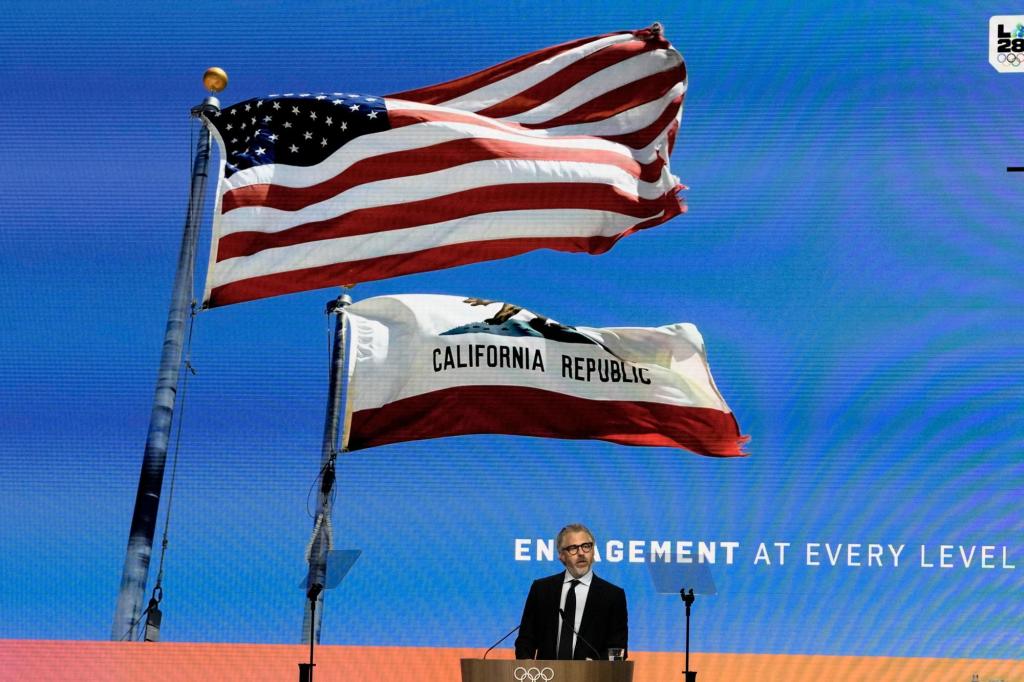
When the International Olympic Committee in 2017 voted to allow Los Angeles to host the 2028 Summer Olympic Games, it was seen as a great day for the city. L.A. campaigned hard, with then-Mayor Eric Garcetti proclaiming: “Like anything worth fighting for, this was a long journey.” Eight years later, many Angelenos are wondering whether the fight was worth it.
Some observers are pushing for L.A. to back out of the games. That seems unlikely and potentially a costly contract breach, but their concerns have merit. This year’s devastating wildfires put more pressure on an already unsteady budget. The Trump administration’s sending of National Guard troops to Los Angeles—and its restrictions on foreign travel—could cause many other problems.
Even though Los Angeles has previously hosted the games twice before, there’s good reason to worry about whether the current leadership has the skills to pull off such a complicated endeavor in an efficient and cost-effective manner. The January wildfires exposed myriad layers of incompetence that had festered here for years.
If LA28 organizers were trying to set everyone’s minds at ease, they could have done better than its recently unveiled Impact and Sustainability Plan, which depicts the Games as “a once-in-a-generation opportunity to uplift our communities and lead by example,” per its CEO’s statement in this newspaper. We’ll be relieved if the city competently manages transportation and trash collection.
The LA28 proposal is full of pabulum: “Driven by the opportunity to achieve equitable progress, guided by interconnected and stakeholder-centric commitments and anchored by responsible governance, the LA28 Olympic and Paralympic Games will serve as a catalyst for lasting benefits to the region.”
Organizers promise investment in local youth sports activities, support for local businesses, using existing venues and a focus on transit. They call it the coming Summer Olympics “no build” and “transit first.” Those aren’t the worst ideas, despite the PC verbiage. Giant sports events rarely live up to the financial hype, so it makes sense to use existing structures. Transit is a good way to shuttle around millions of visitors, although L.A. has never succeeded in its everyday transit systems.
Our main concern involves protecting taxpayers from footing the bill for this endeavor. To their credit, L.A. officials have promised that this will be a privately funded spectacle. The Games are expected to cost $7.1 billion, however. LA28 officials claim they are on track to raise a third of that from corporate sponsorships. Another third will come from tickets and hospitality.
But that leaves a lot of potential for taxpayer subsidies, with the federal government (“The Big Beautiful Bill”) earmarking $1 billion for security and the city pledging $270 million if the Games go over budget. That’s a lot of money given the city’s current financial problems. Recent research shows that every Olympics since 1960 has gone over budget—and taxpayers often subsidize billions of dollars in costs.
However, the 1984 L.A. Games were the only time a city has profited from them. But as CNBC reported, modern Los Angeles is near the fiscal cliff—and there’s no room for even a small revenue miscalculation. So we’ll see. Here’s hoping Los Angeles officials spend less time bloviating about generational uplift and more time getting the revenue numbers right.
Originally Published:



